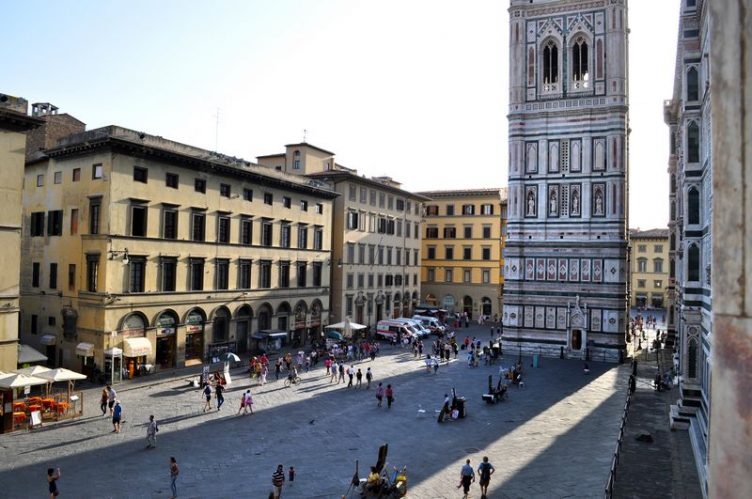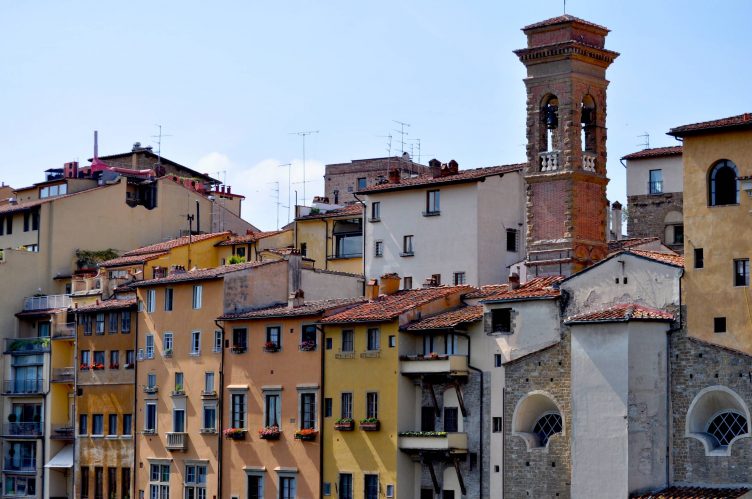Retiring to Italy: why choose to move?
There are many benefits to retiring in Italy. The first? The warmth of the people.
Italian people are very open to getting to know new people, taking care of guests, and making you feel like you’re at home. In Italy, there is a big sense of family and hospitality. Every occasion is good to spend time together: from family events to holidays commanded by the Roman Calendar.
Most of these moments are spent around a dining table, and it is one of the most important elements of Italian culture because Italians are passionate about food, especially handmade food like spaghetti, tortellini, and pizza.
And if good food and warm people don’t seem enough to convince you to retire to Italy, believe us, the weather is very comfortable. You can live every season to its full extent. Winters are not too cold, but you can still find places in the North for skiing. Summers are hot enough to enjoy all the different beaches and coasts of the country, where you can relax and sunbathe.
Italy is characterized by the vast variety of landscapes: in the same region, you can find plains, small hills and big mountains, as well as huge lakes and the sea. In every Italian city, you can admire beautiful and unique artwork and architecture: the ancient Colosseum in Rome, the fascinating leaning Tower of Pisa, the giant David of Michelangelo in Firenze, the timeless Last Supper in Milan, and so on.
Let’s look at all you need to know before you decide to retire to Italy.

What’s the currency in Italy? And what about taxes?
Italy is a member of the European Union and adopted its official currency, the euro. If you retire to Italy, you will always have to use euros, so you will have to open an Italian bank account.
The currency conversion rate changes continuously, but let’s see some of the most common:
- One American dollar corresponds to 0,87 euros
- One British pound corresponds to 1,14 euros
We suggest you look at the currency converter when you decide to move to Italy, in order to have a precise currency conversion.
And what about taxes? In Italy, you have to pay a tax on your income that is calculated in your annual tax return. For more information on this aspect, we advise you to contact an accountant who can advise you on how to keep up to date with the taxes. But first, take a look at this great news about taxes in Italy for a retiree.
Fewer taxes if you retire to southern Italy
If you still have any doubts about retiring to Italy, you have to know the new measure implemented by the latest Italian Budget Law: taxes will be reduced by 7% for those who decide to retire to the South of Italy. This great measure, which is operational since June 2019, according to the laws decided upon by the Revenue Agency – came into force in 2020.
If you want to take advantage of this recent law, you have to transfer your tax residence to a municipality with no more than 20 thousand inhabitants in a region of South Italy: Sicily, Calabria, Sardinia, Campania, Basilicata, Abruzzo, Molise, or Puglia. The reduction is valid for ten years.
You have to demonstrate the status of non-resident in Italy for at least five years, with the presentation of the income tax return. And it is necessary that the country in which you have had the last residence is among those with which tax cooperation agreements with Italy are in force.
Italian healthcare: What to know before moving
Unlike the American health system, the Italian one covers all citizens and foreigners. The low rate of mortality and a high level of life expectancy are proof of the efficiency of the Italian Health System. In Italy, people live for about 83 years on average.
In addition to the health system, which offers a reduction on the cost of health services you need based on your income range, you also have a lot of private care institutions and medical professionals who make private visits.
Hospital stays are covered by the National Health System; you only have to pay a small percentage of the medicines prescribed by your family doctor.
Furthermore, resident retirees can register with the National Health Service (SSN), paying an annual contribution calculated on declared foreign income.
Which are the best Italian cities to live in?
According to a 2024 study of Il Sole 24 Ore, the quality of life is generally higher in northern Italy compared to the South.
The cost of living is slightly higher, but there are more services for citizens and a more efficient healthcare system. In the South, on the other hand, you can find the best places to enjoy the sea and the beach, especially in Sicily and Sardinia.
Among the Italian cities with the highest quality of life are Bolzano, clean and close to the Dolomites, with efficient public transport; Siena, in the heart of central Italy, famous for Piazza del Campo and the Palio; and Parma, large but peaceful, with wide green areas and known worldwide for Prosciutto Crudo and Parmigiano Reggiano.
For us, the best city is Florence, rich in history and culture.
Walking through the city center, you can feel the atmosphere of the Medici era, with iconic landmarks like the Cathedral of Santa Maria del Fiore, Palazzo Vecchio, and Ponte Vecchio. The food is also extraordinary, with specialties such as the Bistecca alla Fiorentina, which you can’t miss.
How much money do you need to retire in Italy?
The cost of living in Italy changes according to which part of Italy you choose to live in: the north is known as the more expensive part to live in, and the south as the more affordable.
Probably when you think of Italy, you dream of living in beautiful, big cities like Milan, the Italian fashion capital, or Rome, the city with a very old history, or even Florence, the cradle of the Renaissance.
Let’s take a look at the average cost of living in Florence, based on the data suggested by Numbeo.com:
- A meal for two in a restaurant costs about 60 euros
- A monthly public transport ticket costs about 35 euros
- The rent of an apartment ranges from 600 to 1500 euros; the price depends on the number of bedrooms, and the costs increase as you get closer to the city center
- The price of utilities for the home (electricity, water, heating, garbage), an internet subscription, and a prepaid mobile subscription is about 200 to 300 euros per month
- Grocery shopping for two costs about 100 euros

If you sum all of these prices, it means that you must have at least 1500 euros to live in a big city like Florence. Cities like Florence are perfect to learn speaking Italian. And after you have learned the language, you can dare to take a step out of the big cities and you will find more affordable, but also comfortable, little cities. And whenever you want to go for a walk in a museum or to eat in a special restaurant in the big city, all you have to do is to get on a train.
How can you get an Italian visa
If you are a citizen of the European Union, all you need to move to Italy is a valid national identity card or a passport.
But if you come from a country that isn’t part of the European Union, you must have a visa. You can get a visa if you have a valid reason, like traveling for business, studies, employment, medical treatment, or family reunion.
There are three different types of visas:
- Uniform Schengen Visas (USV): for brief stays or travel visas. It’s valid for up to 90 days, for single or multiple entries.
- Limited Territorial Validity Visas (LTV): these particular visas are for people who come from countries that cannot access the Schengen States except for humanitarian reasons, in the national interest, or under international obligations
- Long stay or “national” Visas (NV): these are the type of visas you must have for visits longer than 90 days. These visas permit you to enter at different times in the year in the Schengen States.
For more detailed information, we suggest you fill out the form on the official site of the Italian Ministry for Foreign Affairs.
Alternatively, to find more information, go to the Italian Consulate in your country and ask your questions directly.
For non-EU retirees, there is a specific visa: the Elective Residence Visa.
It is intended for those with sufficient income or savings to live in Italy without working.
Main requirements:
- Having accommodation available in Italy
- Proving a stable income (e.g., a pension)
- Having a private health insurance valid in Italy
From 2025, economic requirements will be stricter and controls more thorough.
Learning Italian with Europass
In Italy, there are a lot of people who speak English well, but we have to say that it would be a pity if you decided not to learn Italian.
It isn’t so difficult, and you can discover that all the people you meet try to help you learn the principles and most used words to make you feel a bit Italian.
If you want to learn Italian more quickly, you can join our Italian course in Florence, which is also offered online.

